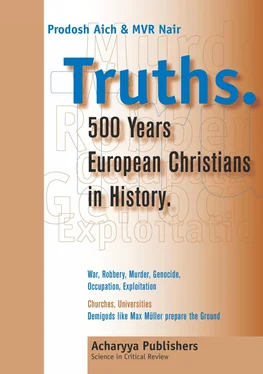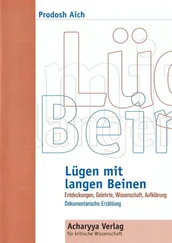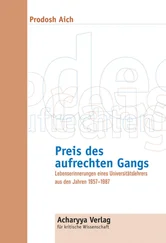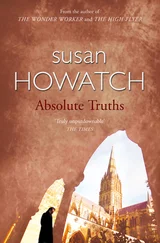1 ...7 8 9 11 12 13 ...38 His family heredity, childhood and early school days
Max Mülleris born in Dessau, in a small Duchy called Anhalt-Dessau, on December 6, 1823. He was not born as Max Müller. He is Friedrich Maximilian Müller. He changes his name rather late, at sometime in 1847 while staying in England. He marries in England much later. On the marriage testimony, he is registered as Frederick Maximilian Müller. Why does he do this exercise with his name? Why did he try to conceal his identity as Friedrich Maximilian Müller? We do not know yet. We shall try to find out in due course.
Anhalt-Dessau is a small, prosperous and progressive Duchy. So it is said. Until 1603 Anhalt-Dessau was ruled by the Prince of Anhalt-Zerbst, and thereafter Anhalt-Dessau was recreated, being raised to a duchy in 1807. It was located in the north-central Europe, south of Prussia, having Zerbst in between, and between the two “provinces” of Saxony. Territory wise the Duchy was about 630 square-kilometres having a maximum 60,000 in population. Dessau was the administrative town having a population of about 3,000. Frederick Leopold IVsucceeded Duke Leopold IIIin 1817. This is the phase not only in the “German” history when the “nobles” are systematically losing their might and economic hegemony leading to the rise of Capitalism in Europe and all that went and goes with it. Occupation of foreign lands, so-called Colonialism included. A land called Germany was not created yet.
“Müller” is a traditional surname widely spread in Germany. The “Müllers” in Germany belonged to the lower strata of the “commons” in the society. Traditionally the “Müllers” were grinders of corns and seeds of all sorts.
Friedrich Maximilian’s parents Wilhelmand Adelheide Mülleralso gave birth to a daughter, Auguste, on 20. April 1822. Wilhelm Müllerwas the sixth of seven children of Christian Leopoldand of Marie Leopoldine Müller. They were poor. Christian Leopold Müllerwas a tailor. He was often ill at stretches. Before Wilhelm Müllerwas three years old, all other children had expired.
Christian Leopold Müllerdid not try to train Wilhelmas a tailor. In spite of his poverty, he sent his son to schools. He wanted his only surviving son Wilhelmto prosper more in life by getting education. He lost his wife while Wilhelmwas fourteen years old, in 1808. A year later, Christian Leopold Müllermarried the widow of a well-to-do master-butcher, Marie Seelmann, so that he would be able to ensure his son Wilhelma good education. So it is told. He succeeded.
Wilhelm Müllercould begin studying literature, history, and philology at the University in Berlin when he was eighteen, in 1812. We take note that Berlin is far off from Anhalt- Dessau and more expensive than the nearer off university at Leipzig. Six months later, however, Wilhelmjoined the Prussian army in the “War of Liberation” against Napoleon, who was retreating from his disastrous invasion of Russia. Within a year, Wilhelm Müllerbecame a lieutenant at the age just over nineteen. On his tour of duty, he stayed in Brussels where he got involved in a love affair that ended badly.
Wilhelm Müllerresumed his studies at the University in Berlin in 1814. He completed his studies in 1817there. While studying he discovered his affinity to cultural activities. He visited literary circles. He wrote also his own verses. He fell in love with the poetess Louise Hensel, who encouraged him in his writer-career but did not return his affections and love. He had also joined the Berliner Gesellschaft für deutsche Sprache (Berlin Society for the German language). Thus he got the chance to travel to Greece, Egypt and the Middle East with the Prussian chamberlain Baron Sack. Unfortunately, because of the plague in Constantinople they stopped off in Italy. Around Easter, he parted from Baron Sackbecause he wanted to stay on in Italy, went to Naples and spent the summer in Rome.
On his return from Italy, he was appointed as a teacher of classic languages at Dessau in 1818. Then he took up the job of an assistant librarian in the ducal library in Dessau. A year later, he became a librarianof the small Duchy having a population of maximum 60,000 as we remember. As a librarian, however, he became a part of the administration of the Duchy though on the bottom line to begin with. He was then twenty-five.
Wilhelm Müller, being the son of a poor tailor, thus arrived at the threshold of the entry to the “high society” of Anhalt-Dessau. He made friends in circles engaged in cultural activities also outside Anhalt-Dessau. Franz Schubertwill set two of his verses to music: Die Winterreise (The winter trip) and Die schöne Müllerin (The miller's beautiful wife). These two songs are played even today. Max Müllerwill proudly mention this in his Auld Lang Syne, published by Longmans, Green, and Co., London and Bombay in 1898 (p.42), i.e. two years before his death. Auld Lang Syneis one of our primary sources to reconstruct the real life of Friedrich Maximilian Müller.
In 1821 Wilhelm Müller,when he was 27 years old, entered into a love-match marriage with Adelheid Basedow.She was then 21 years old. Adelheidbelonged to a more prominent family, a few ladder higher in the ranking of social-prestige-scale than Wilhelm,in Anhalt-Dessau. The family Basedowdid not approve this love-marriage. The newly married couple got thus socially isolated.
Adelheidwas granddaughter of J ohann Bernard Basedow(1723-1790). He was born at Hamburg in 1723, as the son of a barber and wigmaker. However, we do not know how, he managed to come to Leipzig as a student of theology, but gave himself up entirely to the study of philology, i.e. classic-languages. In 1752 he wrote a thesis: "On the best and hitherto unknown method of teaching children of noblemen" , and obtained the degree of Master of Arts from the University at Kiel in the northern part of present Germany. Why at Kiel and not at Leipzig, we do not know. The documents kept in the archives are comparatively rather meagre. He was not that important personality as Max Müllerwill proudly refer to J ohann Bernard Basedowafter hundred and eightyyears in his Auld Lang Syneand in his My Autobiographypublished by Longmans, Green, and Co., London and Bombay.
Johann Bernard Basedowevolved to a “pedagogic reformer”. The Duke of Anhalt-Dessau, Wilhelm Leopold IIIwelcomed him to implement his pedagogic ideas in his small Duchy. In 1774 Johann Bernard Basedowwas permitted to set up a school, called Philanthropinum, in Anhalt-Dessau. “Philanthropinum” is derived from Greek and means “friend of mankind”. As simple-minded persons, we do not quite comprehend this “pedagogic reform”. We consider only facts and facts behind the facts. And, these are these.
The school opened in December 1774. The motto was, so it is said, "everything according to nature". Rich and poor were to be educated together. The curriculum was practically-based and conducted in German (rather than Latin or Greek), handicrafts were taught, there was an emphasis on games and physical exercise, and school uniform was made simple and more comfortable, so it is handed-down. The facts behind these facts are: The school was open to the children of nobles only. Yet the performances of his first pupils profoundly impressed observers. However, Johann Bernard Basedow’s heavy drinking and emotional outbursts drove away the best teachers from Philanthropinum. In 1784 Johann Bernard Basedowdisconnected himself from the school, the Philanthropinum, in Anhalt-Dessau.
Читать дальше












